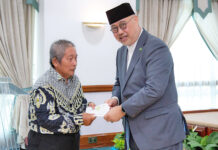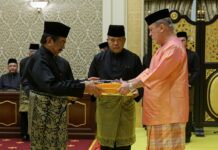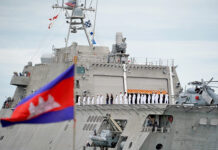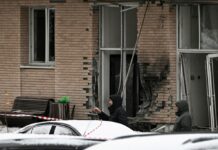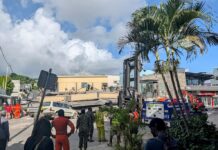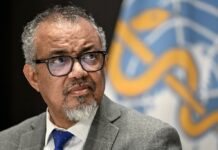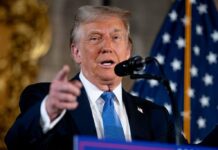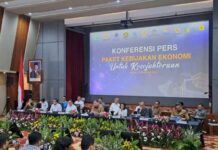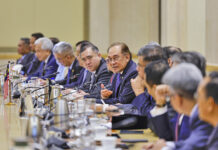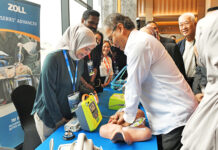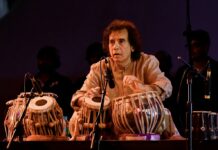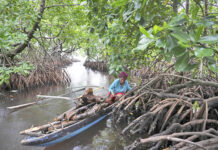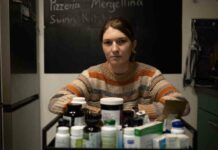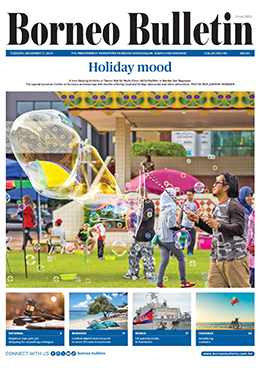GUASAULE, HONDURAS (AFP)- For thousands of Nicaraguans who embark on an odyssey to the United States (US) each year in search of a better life, the first hurdle is dealing with corrupt border agents in neighbouring Honduras.
Fleeing political and economic turmoil under President Daniel Ortega, dozens depart every day: leaving behind their families, selling off their belongings and entering into debt all for the chance at a new start.
Yesica Centeno, 42, is a trained company administrator, one of vast numbers of Nicaraguans without work or earning paltry wages.
She is among dozens of passengers on a bus at the El Guasaule border crossing with Honduras. It was a three-hour trip from Managua, the first leg in a two-day or 800-kilometre journey to Guatemala City.
“It is possible that some of you may have problems with your vaccination certificates or travel documents,” the bus conductor advises passengers.
“If this happens, do not argue with the Honduran ‘migra’ (migration agents). Come to find me and I will help you. You already know that everything is solved with money,” said the conductor, who did not want to be named.
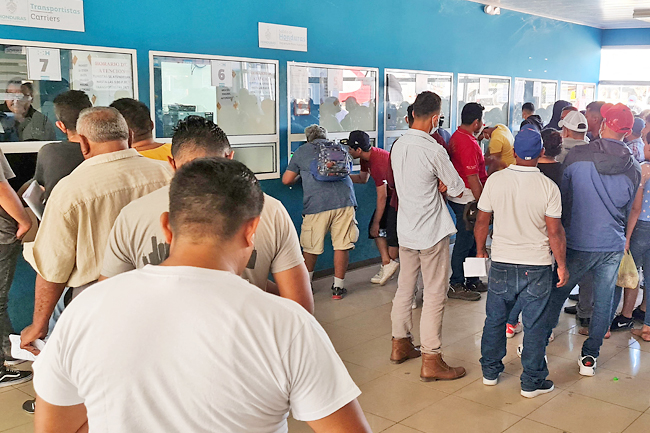

Travelling with two children, Centeno, indeed, is informed she cannot enter Honduras due to a problem with her Covid vaccine certificate.
“When we arrived at the border with Honduras, we felt ill-treated,” she told AFP after the exchange.
“Everything is money. They tell you that for a wrong letter or a number in a document you cannot continue travelling.
“The only option they give you is to ‘fix it’ with money,” said Centeno.
A quarter of Nicaraguans live in poverty, according to official figures.
Central America’s smallest economy has been stuck in a political and economic crisis since 2018, and Ortega has come under fire for increasing authoritarianism, arresting dozens of political rivals and jailing hundreds of opponents.
Border officials “take advantage” of the plight of desperate Nicaraguans, said Centeno.
Twenty of the 36 passengers on the bus end up paying USD40 each to be allowed to enter Honduras, AFP witnessed.
For Centeno, the fee was USD120 – USD40 each for her and her two children.
Another five passengers had to pay USD100 each for alleged problems with their travel documents.
For those who arrive without a Covid vaccine certificate – which is mandatory for entry into Honduras – a “fine” of USD250 opens the door, said one bus passenger, who did not want to give their name.
In total, the officials netted USD1,300 from the passengers, with the bus conductor acting as intermediary.
Another 16 buses loaded with Nicaraguan migrants arrived at El Guasaule at the same time.
According to the US Customs and Border Protection agency (CBP), over 164,000 Nicaraguans were caught trying to enter the US without valid travel documents in 2022 – three times more than a year earlier.
Questioned by AFP, Honduran authorities said they were unaware of irregularities at the border post.
“The National Institute of Migration does not charge for entry into the country, we are against any illegal collection,” spokesman Wilson Gomez said.
“If it is established that fees are being charged, the Institute will refer the matter to the public prosecutor’s office for investigation,” he added.
Ortega, who has been in power since 2007, has claimed that US sanctions against his country are to blame for the mass exodus.
As well as the president himself, the US has sanctioned over 30 family members, allies, and companies linked to the government following a brutal 2018 crackdown on anti government protesters.
To get to the US, where they hope to find asylum and work, the Nicaraguan migrants must cross Honduras, El Salvador, Guatemala and then Mexico.
Corruption is a major problem in Honduras.
President Xiomara Castro, elected in January, vowed a “war on extortion” and signed an agreement with the United Nations in New York last month to form a commission to investigate corruption.
Her predecessor Juan Orlando Hernandez was extradited to the US last year on drug-trafficking charges, accused of facilitating the smuggling of 500 tonnes of cocaine in exchange for millions of dollars in bribes.




